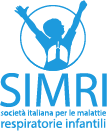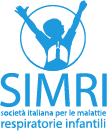MENU
The Society SIMRI
Publications
Faq Pediatric Pneumology Visit
1. What is a pediatric pulmonology visit? It is a specialist consultation to assess, diagnose, and manage children’s respiratory health, including asthma and allergies.
2. How can I prepare for my child’s pulmonology appointment? Keep a symptom diary, bring medical history, answer common questions (e.g. birth weight, family allergies), and prepare a list of concerns.
3. What tests might be required during the visit? Depending on symptoms, the doctor may request spirometry, lung function tests, chest X-rays, or allergy assessments.
4. What should I include in a symptom diary? Note the date, context, symptoms observed, and any treatments given. A symptom diary helps assess patterns related to asthma.
5. Are there specific questions I should ask the doctor? Yes. Consider asking why your child coughs, if an inhaler is needed, how to handle breathing issues, and whether pets worsen symptoms.
Pediatric Pulmonology Visit: What Parents Should Know and How to Prepare
Why the Pediatric Pulmonology Visit Matters
A pediatric pulmonology consultation is a key moment in evaluating and monitoring a child’s respiratory health. This type of specialist visit is essential not only to diagnose and treat conditions like asthma but also to prevent them through tailored and accurate assessments. Understanding how the visit is conducted helps parents prepare and work effectively with the pulmonologist to ensure the best care pathway for their child.
What Happens During the Visit
The pediatric pulmonologist begins with a thorough medical history, collecting detailed information about the child’s clinical background, current health, and any family history of respiratory or allergic diseases. This is critical to identifying potential risk factors or hereditary patterns.
The doctor then performs a comprehensive physical examination, including listening to the lungs, checking respiratory rate, and inspecting the chest. In some cases, additional tests may be requested—such as spirometry, lung function tests, chest X-rays, or allergy testing—to achieve a precise diagnosis or assess treatment effectiveness.
Each pediatric pulmonology visit is personalized based on the child’s age, medical history, and specific needs. The goal is to provide effective and minimally invasive care that supports the child’s overall well-being and development.
How to Prepare for Your Child’s Pulmonology Appointment
Here are the most important steps to help you get the most out of your first appointment with a pediatric pulmonologist.
Keep a Symptom Diary
Take notes about your child’s symptoms and when they occur. A simple symptom diary to share with the pulmonologist may include:
The date of the episode
The situation in which symptoms appeared
What symptoms occurred and any treatments used
Asthma symptoms may be constant or intermittent. A recurring combination of signs and symptoms increases the likelihood of asthma. A calendar or symptom journal can help the doctor assess whether asthma is present.
Tip: Record your child’s symptoms with your phone.
If possible, video or audio recordings of your child experiencing symptoms like coughing or wheezing are very helpful for the doctor, especially if symptoms are not present during the visit.
Prepare Answers to These Questions
The pediatric pulmonologist may ask some of the following. Your answers will help them determine if your child may have asthma:
Was your child born prematurely?
Did your child have a low or high birth weight?
Did you smoke during pregnancy?
Does anyone at home smoke?
Does your family have a history of asthma, eczema, hay fever, or allergies?
Does your child suffer from eczema, hay fever, or other allergies?
Does your child frequently have a blocked or runny nose?
Does your child live on a busy main road?
Is there dampness or mold in the home?
Has your child had bronchiolitis or croup?
Write down your answers and bring them to the appointment for review.
Make a List of Questions to Ask the Doctor
When you arrive, it’s helpful to have a list of everything you want to ask. Common questions include:
Why is my child coughing?
Will they need an inhaler?
What should I do if they can’t breathe?
Will the symptoms go away?
Should I inform the school or daycare?
Could our dog/cat be making it worse?
Don’t worry—there are no “wrong” or “silly” questions. The more information you share, the better the doctor can help your child. Your pulmonologist will be glad to go through your list with you.


